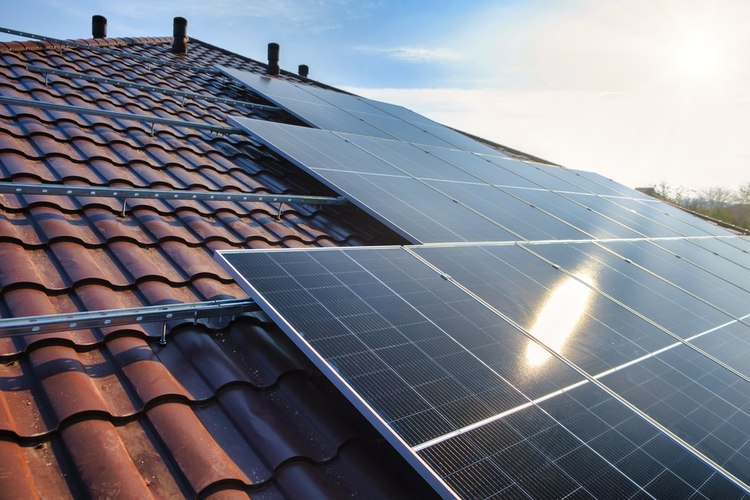Solar Water Heaters: Harnessing the Sun's Energy for Your Home and Pool
Solar water heaters are an innovative and eco-friendly solution for heating water in homes and swimming pools. By harnessing the power of the sun, these systems can significantly reduce energy costs and decrease reliance on traditional heating methods. This article will explore how solar water heaters work, their benefits, and their applications for both residential use and pool heating.

-
Active systems: These use pumps to circulate water or a heat-transfer fluid through the collectors and into the storage tank.
-
Passive systems: These rely on natural convection to move water through the system, eliminating the need for pumps and controls.
The choice between active and passive systems depends on factors such as climate, budget, and specific household needs. In both cases, the solar panels on the roof play a crucial role in capturing the sun’s energy and converting it into usable heat for your home’s water supply.
Can solar water heaters be used for swimming pools?
Yes, solar water heaters are an excellent option for heating swimming pools. Pool heating can be a significant expense, especially in cooler climates or during shoulder seasons. Solar pool heaters offer an energy-efficient and cost-effective alternative to traditional gas or electric heaters.
Solar pool heating systems typically work by pumping pool water through a series of solar collectors, usually mounted on the roof or a nearby structure. As the water passes through these collectors, it is heated by the sun’s energy before being returned to the pool. This process continues throughout the day, gradually raising and maintaining the pool’s temperature.
The main advantages of using solar water heaters for swimming pools include:
-
Lower operating costs compared to conventional pool heaters
-
Extended swimming season without significant additional expenses
-
Environmentally friendly heating method
-
Low maintenance requirements
What are the benefits of installing a solar water heater?
Installing a solar water heater offers numerous benefits for homeowners:
-
Energy savings: Solar water heaters can significantly reduce your reliance on conventional energy sources, potentially lowering your utility bills by 50-80% for water heating.
-
Environmental impact: By using clean, renewable solar energy, you reduce your carbon footprint and contribute to a more sustainable future.
-
Long-term cost-effectiveness: While the initial investment may be higher than traditional water heaters, solar systems can provide substantial savings over their lifespan, which typically ranges from 15 to 20 years.
-
Increased home value: Solar water heaters can be an attractive feature for potential buyers, potentially increasing your property’s resale value.
-
Low maintenance: Most solar water heating systems require minimal maintenance, with only periodic checks and cleaning needed to ensure optimal performance.
What factors should be considered when installing a solar water heater?
When considering the installation of a solar water heater, several factors should be taken into account:
-
Roof orientation and space: Ideally, your roof should have a south-facing area with minimal shading for optimal solar panel placement.
-
Local climate: While solar water heaters can work in various climates, their efficiency may vary depending on the amount of sunlight available throughout the year.
-
Water usage: The size of the system should be based on your household’s hot water consumption patterns.
-
Building codes and regulations: Ensure that your installation complies with local building codes and zoning regulations.
-
Integration with existing systems: Consider how the solar water heater will work alongside your current water heating system, which may serve as a backup during cloudy days or periods of high demand.
-
Professional installation: While some DIY enthusiasts may be tempted to install their own system, it’s generally recommended to hire a certified professional to ensure proper installation and optimal performance.
How do solar water heaters compare to traditional heating methods?
To provide a clear comparison between solar water heaters and traditional heating methods, let’s examine their key features and costs:
| Heating Method | Initial Cost | Operating Cost | Lifespan | Environmental Impact |
|---|---|---|---|---|
| Solar Water Heater | $3,000 - $8,000 | Very Low | 15-20 years | Minimal |
| Electric Water Heater | $300 - $800 | Moderate to High | 10-15 years | Moderate |
| Gas Water Heater | $400 - $1,000 | Low to Moderate | 8-12 years | Moderate |
| Heat Pump Water Heater | $700 - $2,000 | Low | 10-15 years | Low |
Prices, rates, or cost estimates mentioned in this article are based on the latest available information but may change over time. Independent research is advised before making financial decisions.
While solar water heaters have a higher upfront cost, their long-term savings and minimal environmental impact make them an attractive option for many homeowners. The choice between solar and traditional heating methods will depend on factors such as your location, budget, and environmental priorities.
In conclusion, solar water heaters offer a sustainable and cost-effective solution for heating water in homes and swimming pools. By harnessing the power of the sun, these systems can significantly reduce energy costs and environmental impact. While the initial investment may be higher than traditional water heaters, the long-term benefits and energy savings make solar water heaters an attractive option for environmentally conscious homeowners looking to reduce their carbon footprint and energy bills.






